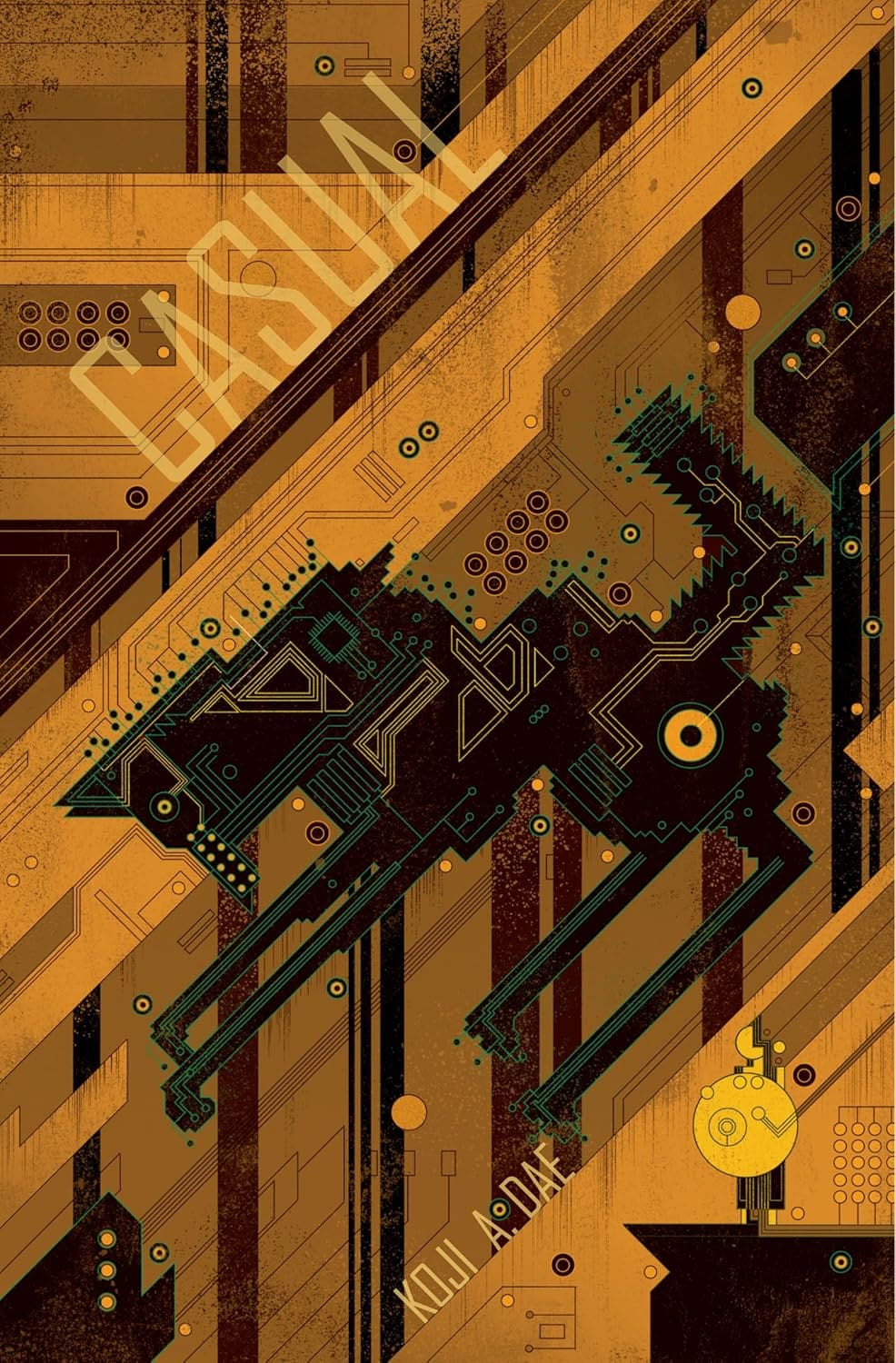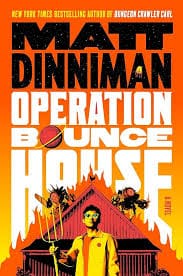
Smart Casual
Synopsis
Valya’s neural implant is amazing.
Its game-like app, CASUAL, has managed her depression and anxiety, stabilized her mood, and helped the infertile Valya get pregnant. But new laws forbid her from using the device when she’s sole caregiver for her infant. Her gaslighting ex won’t help her, and she can’t afford a nanny, so her obstetrician insists that Valya wean off CASUAL before giving birth.
Despite a will to quit and a supportive new love interest in her birthing class, disabling CASUAL turns Valya’s anxiety into full-blown panic attacks. Her psychiatrist offers to enroll her in a controversial clinical trial that would place a tandem implant in the baby and allow Valya to keep hers active. Valya must decide whether she should attempt parenting without CASUAL or install a minimally tested device in her vulnerable child.
Review
Casual is a near future sci-fi-horror tale about one woman’s attempt to reclaim control while all around her are seeking a claim over her autonomy, and it is a remarkable, engrossing, intense read that left me stunned by what it had to say and how it said it.
The story takes place in Sofia, Bulgaria in a near future that feels uncannily like ours, or at least how ours could very well turn out. The rich live below ground in New Sofia, away from the polluted air; the rest live in Old Sofia above ground, wearing face masks. Installed chips allow you constant gaming app access which blurs with the real world; the same gaming programs can be used medically as therapy for mental illness.
This is not a harsh dystopia – there’s a universal income that staves off poverty and there is no (overt) authoritarianism. But it is the near future of corporate control and class division, where the poorest are distracted by gaming and hopes of making money off it and the rich flourish in their high-tech crystal caves, trying to recreate nature while distancing themselves from the real thing. It is achingly plausible; one of the most plausible futures I’ve read recently.
Into this convincing sci-fi diorama we meet Valya, who is pregnant and relying on a gaming app installed in her brain called Casual that regulates her anxiety and depression. Only problem is she’s single and the law won’t allow her to keep the app up when she gives birth – so she faces a difficult choice of weaning herself off it, or joining a new clinical trial that puts a similar implant in her baby, a decision she is understandably reluctant to make.
As we build up to this inevitable choice, we switch, using Valya’s compelling first person voice, between her attempts to come off the app in the present and all the moments that brought her here. What quickly becomes clear is that she has been buffeted between a series of institutions and people that all seek to control her – with no one actually looking out for her own interests.
There’s her “psycher”, her therapist who put her on the game app and prescribed her medication, yet seems frustratingly unwilling to address the root causes of her anxiety so keen is he to control her treatment. There’s the gaslighting ex, a horrifically smug, controlling, righteous celebrity whose patronising relationship of toxic dominance is fuelled by sex; a twisted version of the healthier BDSM Dae explored in her novella Mazi.
Then there’s the sinister corporate scientist trying to get her on the trial to put the implant in her baby, using any means to convince her. Even her obstetrician offers a patronising denial of medication for her, calling it dangerous for the baby; but as her best friend notes, an anxiety-ridden mother is hardly good for her baby. Meanwhile, Valya seeks relief from financial stress; but while this is a society that provides a universal income, she is still impossibly far from the rich in their underground city. Poverty addressed, but opportunity curtailed for the poor: a logical extension of where we are heading ourselves.
Assailed by corporate, controlling males and mental health challenges on all sides, it feels impossible for Valya to ever have a hope of taking control, and the narrative often verges on the horrific; a slow creeping feeling of inevitability. This is enhanced by the descriptions of her pregnancy and her mental health struggles; the emotions are intense, the sense of a body under siege is vivid; even the muggy weather is against her. It is a vibrant, harsh reading experience.
But this is also partly a hopeful story; Valya for all her challenges is determined to be a good mother and even as her mental health is challenged, a new friendship offers hope the reader clings to like a lifeboat. This balance of the horrific caused by the claustrophobic sense of lost autonomy, and the potential beauty always in the background powered me through the story, breath half hitched, genuinely unsure where we were going to end up.
Ultimately it is hard not to conclude that she has little chance of healing herself or creating a better life with so many facets of society lined up against her – and the societal relevance of this right now as I write this hangs over the story like hundred-foot floodlights. But Dae asks us to question whether a citizen, and in particular, a mother’s power to make your own choices, regardless of whether they are right, can ultimately overcome the inability to completely escape from those seeking to constrain your autonomy. The writing this question is wrapped is as intense as it is important.
Overall, this a stunningly written near future parable about class, mental health, women’s autonomy and all the myriad ways a controlling society can challenge these in a future so real I could almost touch it. I inhabited this tale; it is remarkable.







Leave a Reply